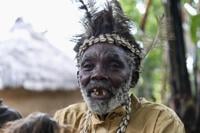In Uganda, politics often intertwines with spiritual beliefs, as many politicians secretly consult traditional healers or witch doctors for perceived advantages. Some fear rivals may use witchcraft against them, leading to superstitious behaviors, like avoiding handshakes. This reliance on the occult is widespread despite Christianity being the dominant religion. Traditional healers claim to offer protection or success through rituals, drawing clients from across the country. Critics, including church leaders, disapprove of these practices, but they remain deeply rooted in cultural traditions. Politicians rarely admit publicly to such consultations, fearing ridicule, yet the influence of spiritual practices persists in Uganda's political landscape.
From
To







